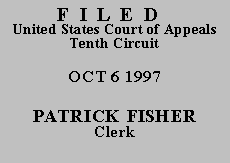

| UNITED STATES OF AMERICA, |
|
Mr. Black contends that consequences of the plea were unexplained, that he did not understand the charges nor what was happening to him. He faults his attorney for letting the judge question him during the plea colloquy and obtain admissions concerning the firearms, and for not alerting the judge that Mr. Black was in withdrawal, the antidepressant supplied by the jail having worn off. He argues that the plea resulted from extreme fear. He further argues that the drugs found on his person were for personal use and that while it was suspected that he sold drugs, no evidence proves it. He also points out that the arresting officers were subsequently indicted for keeping money found on arrestees. He faults his lawyer for the incriminating statements made by others contained in the presentence report.
We have reviewed the transcript of the plea hearing and are satisfied that the district court ascertained the voluntariness of the plea and the factual basis for it. Mr. Black has not overcome the strong presumption of truthfulness attendant to his statements at the plea hearing. See Blackledge v. Allison, 431 U.S. 63, 73-74 (1977). He admitted possession of 37.9 grams of methamphetamine. Tr. 4/8/94 at 10. He also admitted that he possessed the firearms in connection with the methamphetamine because "there's about four guys that was supposed to try to rob us." Id. at 11. These statements support the plea for possession with intent to distribute and for carrying a firearm in connection with a drug trafficking offense. Finally, Mr. Black has not established that his counsel's performance was deficient or that the claimed omissions prejudiced his defense. See Strickland v. Washington, 466 U.S. 668, 687 (1984). To the contrary, the issues Mr. Black raises were largely addressed by counsel in fulfilling his responsibility to his client and the court.
We reject Mr. Black's argument, raised for the first time on appeal, that his conviction violates double jeopardy because he was punished when the arresting officers failed to account for the $140.00 on his person. An authorized forfeiture does not constitute punishment for double jeopardy purposes, see United States v. Ursery, 116 S. Ct. 2135, 2138 (1996), let alone an unauthorized forfeiture.
Because Mr. Black has not made "a substantial showing of the denial of a
constitutional right," 28 U.S.C. § 2253(c)(2), we DENY his Application for a Certificate of Appealability and DISMISS the appeal.
Entered for the Court
Paul J. Kelly, Jr.
Circuit Judge
*. This order and judgment is not binding precedent, except under the doctrines of law of the case, res judicata, and collateral estoppel. This court generally disfavors the citation of orders and judgments; nevertheless, an order and judgment may be cited under the terms and conditions of 10th Cir. R. 36.3.
**. After examining the briefs and the appellate record, this three-judge panel has determined unanimously that oral argument would not be of material assistance in the determination of this appeal. See Fed. R. App. P. 34(a); 10th Cir. R. 34.1.9. The cause is therefore ordered submitted without oral argument.